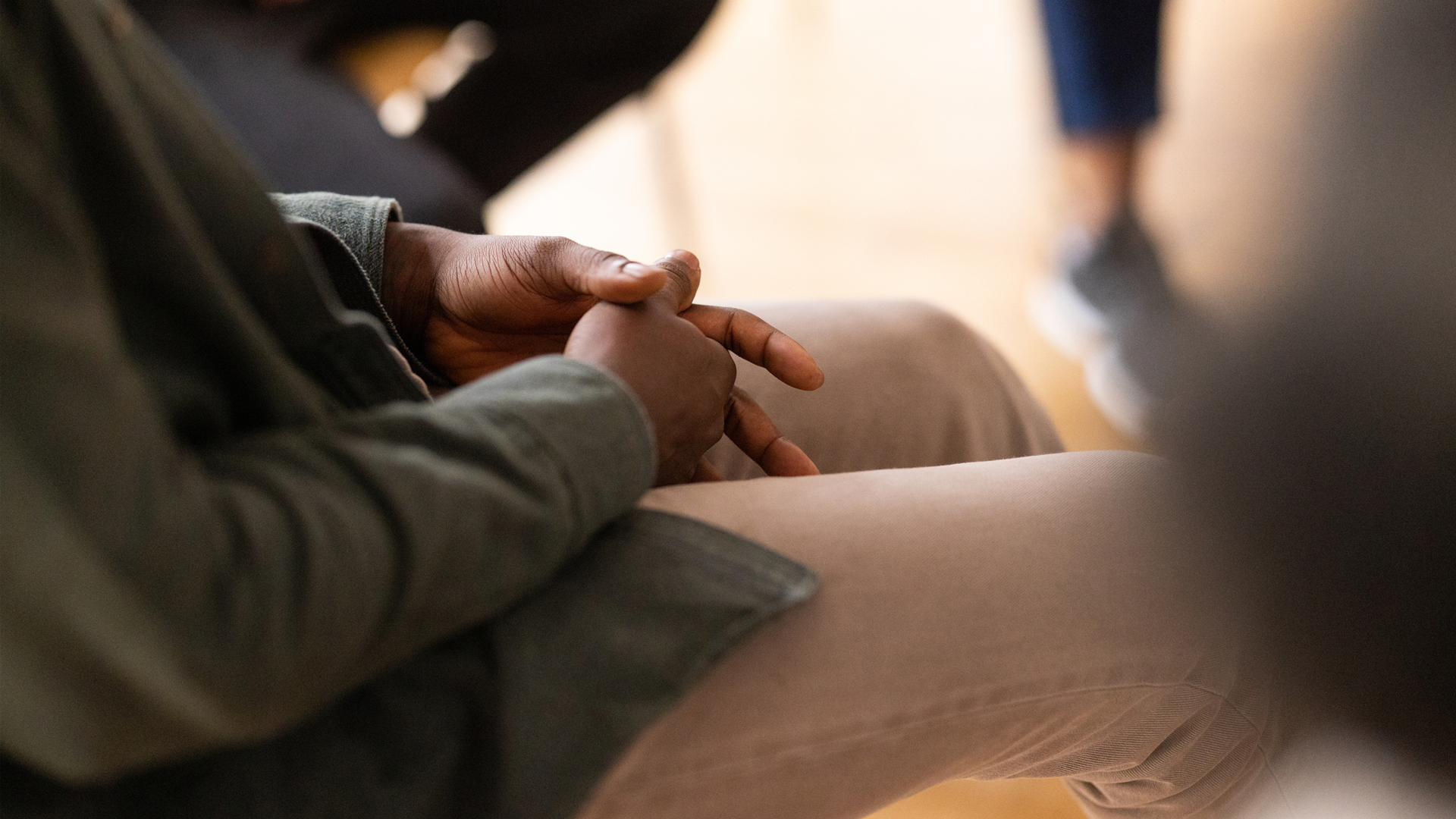Social anxiety disorder: Causes, symptoms and treatment
Social anxiety disorder causes significant discomfort about social interactions.

Feeling uneasy in situations like a first date or a job interview is quite normal and happens to everyone. But when that nervousness escalates into a feeling of extreme discomfort, dread or apprehension about normal social interactions, it can result in a diagnosis of social anxiety disorder. The condition is often confused with shyness, but not all people who suffer from shyness have social anxiety disorder.
Also known as social phobia, social anxiety disorder involves significant anxiety and discomfort about being embarrassed, rejected or looked down upon in social or performance situations, according to the American Psychiatric Association (APA). Typical situations that spark social anxiety are using public restrooms, interacting with strangers and public speaking. A person with social anxiety disorder will avoid social situations or endure them with intense anxiety, despite recognizing that their fear is unreasonable or excessive.
Social phobia is a significant public health concern. According to the Anxiety and Depression Association of America (ADAA), social anxiety disorder affects approximately 15 million American adults and is the second most commonly diagnosed anxiety disorder following a specific phobia.
A 2020 study published in the journal PLoS One suggests that social phobia could be on the rise globally. Researchers analyzed surveys collected from almost 7,000 individuals aged 16 to 29 from seven different countries and found that 36% respondents met the threshold criteria for having social anxiety disorder. This is far higher than previous estimates of 12%. The data also showed that this increase was most pronounced among young people (aged 18 to 24).
Social anxiety disorder: Symptoms
According to the National Institute of Mental Health (NIMH), individuals with social anxiety disorder are highly apprehensive in social settings, more so than the occasional case of nerves some may experience in everyday encounters. They find it difficult to make eye contact, be around people they don't know, or talk to people in social situations, even when they want to.
People with social anxiety disorder tend to be concerned about being harshly judged by other people, even if it is not the case. There is a feeling that when they walk into a room, everyone is watching them. They are typically afraid of coming off as foolish and have an intense fear of embarrassing themselves.
Social phobia can also cause physical symptoms, such as:
- Blushing, sweating or trembling
- A rapid heart rate
- Feeling sick to the stomach
- Having a rigid body posture or speaking with an overly soft voice
According to the APA, social anxiety can cause significant problems with daily functioning. Individuals with social anxiety disorder struggle with maintaining friendships and participating in social situations. They will rarely attend events alone and need to bring someone they know along for security.
To be diagnosed with social anxiety disorder, symptoms need to cause significant distress, last for more than six months and cannot be attributed to any other health conditions.
In addition, about 20% of people with social anxiety disorder also abuse drugs and/or alcohol, according to the publication Social Anxiety and Alcohol Abuse issued by the National Institute on Alcohol Abuse and Alcoholism.
Since many sufferers have difficulty in group settings, some end up consuming alcohol or abusing drugs alone. On the flip side, some may consume alcohol or use drugs as a way to fit in, according to the publication.
Social anxiety disorder: Causes
Unlike other anxiety disorders, there isn't a lot known about what causes social anxiety disorder.
"The causes of the disorder are thought to fall into either the biological or environmental camps," said Cheryl Carmin, a psychiatrist and director of the clinical psychology training program at the Ohio State University Wexner Medical Center.

Cheryl Carmin is a psychologist who specializes in the evidence-based treatment of anxiety disorders. She received her PhD from the University of Minnesota in 1986 and now works as the professor and director of clinical psychology at the University of Ohio.
Environment
Experts believe that social anxiety tends to be rooted in early life experiences. For example, children who witness a parent or other adult who is uncomfortable in social situations may believe that it is typical behavior.
"A parent or a significant adult figure may model that it's appropriate to be anxious in situations where your performance will be evaluated," Carmin told Live Science. "For example, a parent who is commenting on being nervous about a performance review or who tells their child to not be anxious before their first 'show and tell' may be priming the child to, in fact, be anxious in that situation. It's also quite possible that any number of these factors interact."
Peer victimization (the experience among children of being a target of the aggressive behavior of other children) may be another predisposing factor for social anxiety disorder, according to a 2019 review published in the journal Brain Sciences.
Biology
For years, scientists have been suggesting that social anxiety disorder is caused by a dysregulation of neurotransmitters, notably serotonin. "However, serotonin levels are implicated in several anxiety disorders so it is not specific to social anxiety disorder," Camino said.
The recent evidence from brain imaging studies indicates that social phobia may be linked to structural changes in the brain, rather than a chemical imbalance.
According to a 2022 review published in the International Journal of Molecular Sciences, social anxiety disorder may be caused by abnormalities in regions of the brain responsible for processing fear, such as the prefrontal cortex. A 2018 meta-analysis published in the journal Frontiers in Psychiatry also indicates that individuals with social phobia may have an altered composition of gray matter in the brain. Social anxiety disorder has also been linked to an abnormal activation in the cingulate gyrus, a part of the brain responsible for attention control, as reported in a 2021 meta-analysis published in the International Journal of Environmental Research and Public Health.
Social anxiety disorder: Treatment
Psychotherapy and medication, separately or in combination, are often effective treatments for social phobias and social anxiety, according to NIMH.
Most often prescribed are antidepressant or antianxiety medications called selective serotonin reuptake inhibitors (SSRIs), Carmin said. "Monoamine oxidase inhibitors have also been used, but there are dietary restrictions involved with the use of these medications that must be strictly adhered to," she said. "Finally, some individuals with performance anxiety, such as musicians, have had good results with beta blockers."
Cognitive behavior therapy (CBT) appears to be highly effective at reducing social anxiety symptoms, according to a 2022 meta-analysis published in the Journal of Anxiety Disorders.
"This form of therapy helps people to better understand how their thoughts are influencing their fear and avoidance," Carmin said. "By understanding how their thoughts and beliefs are contributing to maintaining their fear, they can begin to challenge their misperceptions."
Another treatment option for some anxiety disorders is acceptance and commitment therapy (ACT), according to the NIMH. ACT takes a different approach than CBT to negative thoughts, focusing on strategies such as mindfulness and goal setting.
Scientists have also been successfully trialing virtual reality therapies, according to a 2021 review published in the International Journal of Environmental Research and Public Health. Digital treatments may be a valid alternative to the acquisition of social skills needed for improving the symptoms of social anxiety disorder. It appears to produce similar results to face-to-face therapy, but it is cheaper and more scalable, the researchers said.
Additional resources:
- Learn more about the symptoms and causes of social anxiety disorder, from the Mayo Clinic.
- Check out tools for diagnosing and dealing with social anxiety disorder in teens, from TeenMentalHealth.org.
- Read more about treating social anxiety disorder, from Harvard Medical School.
Sign up for the Live Science daily newsletter now
Get the world’s most fascinating discoveries delivered straight to your inbox.
Kim Ann Zimmermann is a contributor to Live Science and sister site Space.com, writing mainly evergreen reference articles that provide background on myriad scientific topics, from astronauts to climate, and from culture to medicine. Her work can also be found in Business News Daily and KM World. She holds a bachelor’s degree in communications from Glassboro State College (now known as Rowan University) in New Jersey.
- Anna GoraHealth Writer










